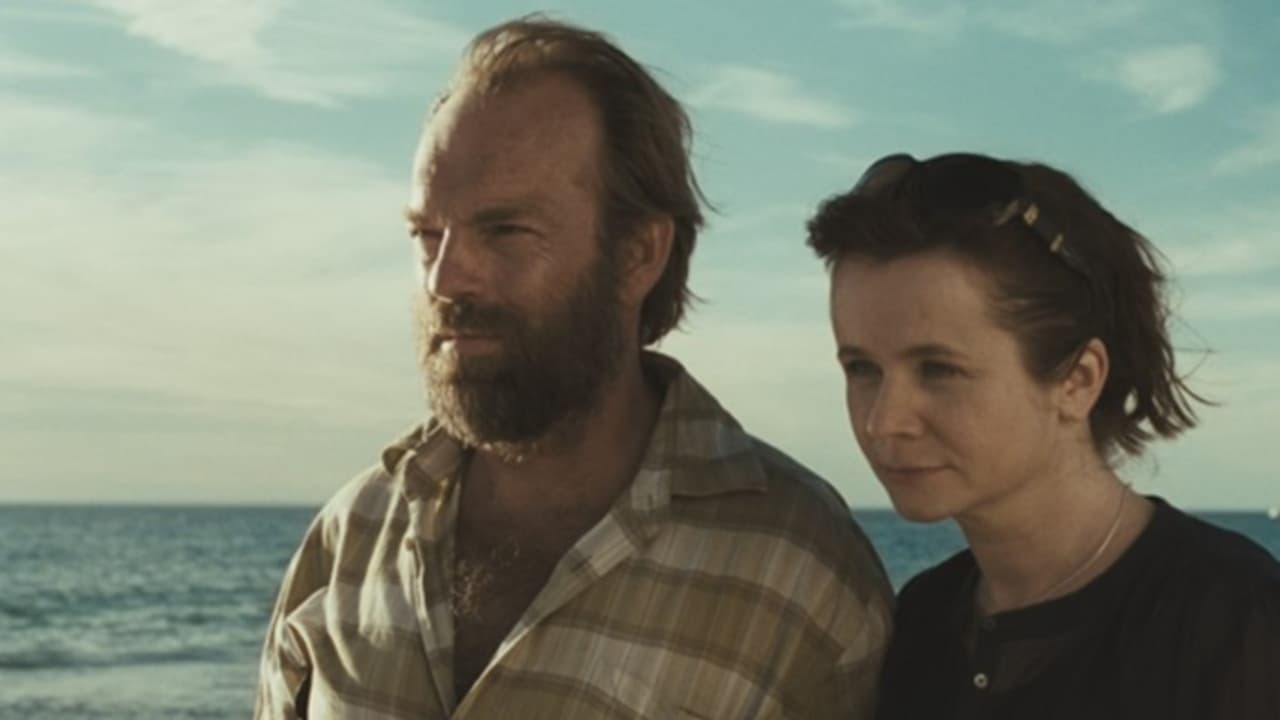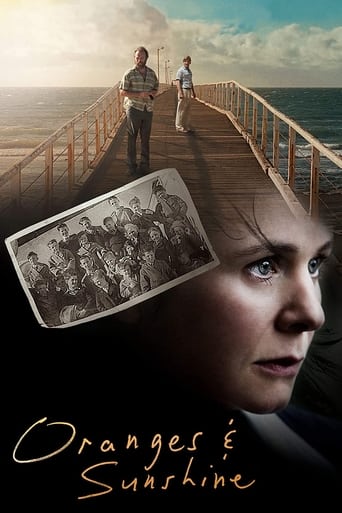



At first rather annoying in its heavy emphasis on reenactments, this movie ultimately proves fascinating, simply because the complicated, highly dramatic tale it tells still almost defies belief.
View MoreIt’s sentimental, ridiculously long and only occasionally funny
View MoreA film of deceptively outspoken contemporary relevance, this is cinema at its most alert, alarming and alive.
View MoreThere's no way I can possibly love it entirely but I just think its ridiculously bad, but enjoyable at the same time.
View MoreAn incredibly moving and beautifully done story out of some dark times in Britain's past. The script is a work of art and director Jim Loach does magnificent work in bringing this tragic tale to life. The cast is uniformly excellent and the film is as suspenseful as if Hitchcock had been at the helm. What really sets this film apart is a stunning performance by Emily Watson. She is nothing less than electric in this role and she adds another jewel to her acting crown with her work. Outrageously, she received no awards for this performance and this important motion picture went unnoticed by those who supposedly recognize excellence in cinema. Emily Watson defines fine acting and she is the most gifted actor of our time. It is amazing and upsetting that the magic she works in film after film is seldom rewarded. She is nothing less than a national treasure and was recently awarded with an OBE.
View MoreThis is the shockingly true story of the forced deportation of thousands of young British children to Australia between the mid-1950's and 1970, taken from their unwilling, poor, working-class single-mothers under the pretext that they would be adopted by "good" families and thus have better lives. No one suspected that the children would instead be sent en-masse down under and put into children's homes, left to fend for themselves in a completely alien environment, while for some unfortunates, as the second half of the film makes explicit, this led them to conditions of forced child labour and ritual abuse at a priest-run establishment out in the middle of nowhere.The brave lady who brought this to light was an ordinary, even nondescript social-worker from Nottingham called Margaret Hargreaves, portrayed here by Emily Watson, who after a chance meeting with a middle-aged Australian woman looking for her natural-born mother, picks up the scent of a scandalously inhumane government policy involving successive UK and Australian administrations, going back decades. At her own expense initially and with the support of her fellow-social worker husband and later her local government employer she herself travels to Australia to fully uncover this disastrous exercise in social engineering.Told soberly and unspectacularly, as the seriousness of the story demands, the film naturally engrosses as it progresses. The impact of the disenfranchisement of the by now grown-up children and especially those horrifically abused by the priests is treated mostly with detachment, thankfully without lurid recreations of actual incidents. Instead the characters simply and convincingly relate their experiences, surely the right approach for such a sensitive subject matter and while the psychological impact of being the single receptacle of all the disenfranchised and abused on Emily Watson's character is shown, again, histrionics are mercifully avoided.Watson, with her plain appearance and pained features well conveys the story of an ordinary worker caught up in a humanitarian scandal, doggedly but always compassionately and selflessly digging at the truth. I did feel however that a more accusatory tone could have been taken with the conspiratorial government departments which made the initial policy and then connived for years afterward in its cover-up and likewise the climactic scene where she, in company with Len, a troubled past resident at Blidoon, the Home where the abuse by the ironically named Christian Brothers took place, confronts the present set of priests over their breakfast, could have been presented a touch more dramatically. However I respect that real life certainly isn't a movie, especially a story as harrowing as this and that I should instead maybe appreciate the restraint shown in the depiction of events here. Perhaps the transition from the initial exposé of the forced migration storyline to that concentrating on the child abuse could have been treated slightly better making me think there might have been two movies here, certainly both tales are important enough for separate depiction, but this unsentimental, unsensational feature gets its message across loud and clear and serves its delicate subject matter honourably and compassionately.
View MoreThis film was written by Rona Munro a noted playwright who has also worked in film, television, radio and various genres including science fiction as she wrote that last ever story for the original run of Doctor Who. The film is based on the the book 'Empty Cradles' by social worker Margaret Humphreys that highlights her real life tale of the supposedly orphaned children sent to Australia and their fight to discover or be reunited with their real parents.The film is directed by Jim Loach, son of radical film maker Ken Loach and together they make a good pair to bring a tale of social injustice and fighting against the establishment to the screen.What makes the film heart wrenching that this migration took place up until the 1970s and some of the kids who ended up in Australia lived a life of systematic abuse and/or indentured labour until they became old enough. Many were suffering from mental scars as well as some physical ones.Although the film is shot in UK and Australia it is a low budget film, it might be slow going for some but the focus is on the actors to bring the tale alive. In that case Emily Watson, Hugo Weaving, David Wenham do a excellent job.It is a film that requires investment of your time and it is not a film that takes the easy way to cynically, manipulate your emotions that a lot of Hollywood films would do. It is a slow burner but the scenes near the end at Bindoon when the full horrors of what the kids have to face is revealed is gut wrenching.
View MoreHere is another example of past British governmental ideas of what was 'good' for disadvantaged or otherwise unprotected children. One recalls the heartless relocation of aboriginal children in Australia so vividly portrayed in "Rabbit-Proof Fence". After watching "Oranges and Sunshine" (and I didn't even see it from the beginning) I couldn't stop thinking of all those thousands upon thousands of helpless little boys and girls, deprived of any human rights whatsoever and doomed to cheerless and loveless childhoods. And then added to the flawed concept of this wholesale export of the underage needy is the fact that there are always predators who will pervert power over the weak into a free hand with abuse of every kind.Of course the greater part of the 'migrants' were profoundly damaged by the appalling treatment they received in a program officially perceived to be 'beneficial', at least in some quarters. Who was to benefit from the production of scarred adults, one has to wonder? Disposing of unwanted people by transporting them to far-flung colonies or Dominions was business as usual a couple of centuries ago; what's especially shocking is the discovery that this was occurring not in Early Georgian or Dickensian England, but only decades ago-- recently, uncomfortably recently. And this in a supposedly civilized nation! This film should have been made thirty years ago...
View More